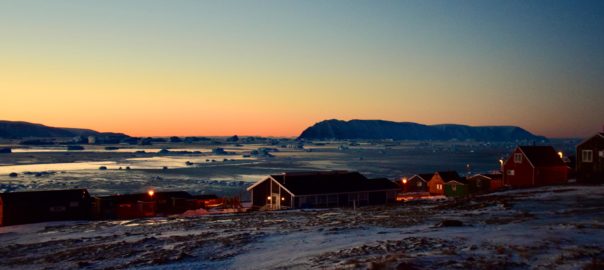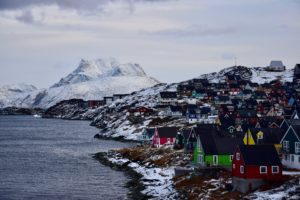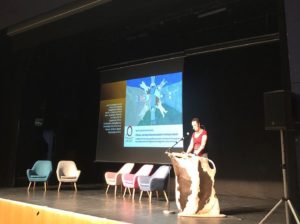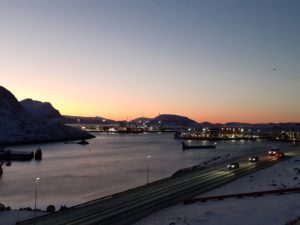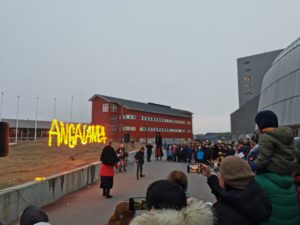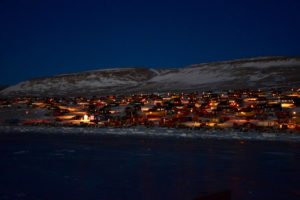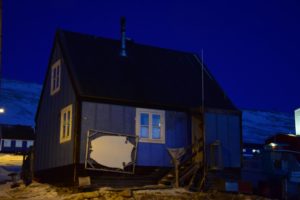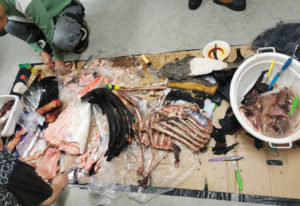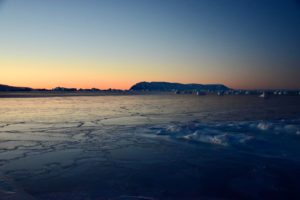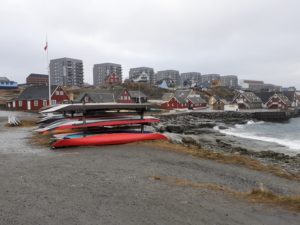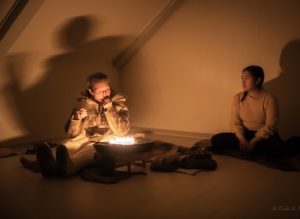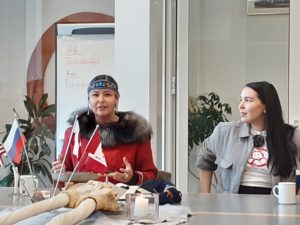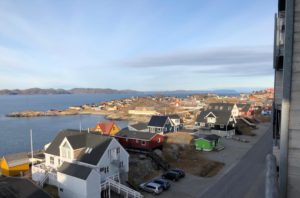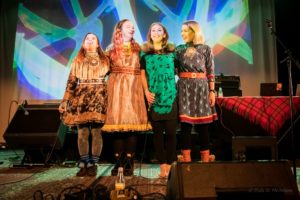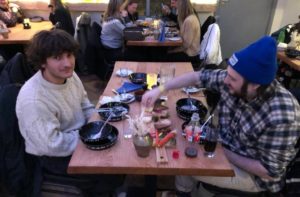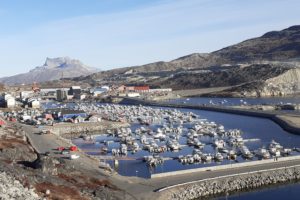Fieldwork in Nuuk, Ilulissat and Qaanaaq. October-November 2021
Martin Binachon, Rachael Lorna Johnstone & Jonathan Wood, University of Akureyri
How do Greenlanders experience colonialism today? How can Greenland decolonise? Do Inughuit (Greenlanders from Avanersuaq, or the far northwest of Greenland) experience colonialism differently? How did the Reconciliation Commission contribute to decolonisation in Greenland? How do Greenlanders’ opinions influence decisions about resource activities?
These are some of the questions asked by Martin Binachon, Rachael Lorna Johnstone and Jonathan Wood during their fieldwork in Greenland in October and November 2021. The three University of Akureyri researchers interviewed 18 Greenlanders and held around 20 informal discussions. They also attended the Nuuk Nordisk Festival & Reflecting Nuuk Nordic side-event. Rachael gave a keynote presentation at Greenland Science Week where she discussed decolonisation of research and education in Greenland and took part in a panel discussion “Making Science Matter: but How?” Martin was also interviewed by the local radio in Qaanaaq where he discussed his research findings.
Martin went to Nuuk, Ilulissat and Qaanaaq to ask Greenlanders, and more specifically Inughuit, about their views on the colonial history of Northwest Greenland and its consequences today. Weather conditions disrupted the whole journey and highlighted how remote Qaanaaq is within Greenland itself. During this fieldwork, Martin encountered a lively and welcoming community and was moved by the people’s kindness and enthusiasm to share their stories and culture with him. Having done research on this subject already, Martin wanted to compare his findings to the perceptions of the locals. In his research, Martin showed that the legal and political history in Avanersuaq is based on colonial attitudes that defined the Inughuit as ‘primitive’ West Greenlanders. This definition justified excluding the Inughuit from political power and this exclusion continues today.
The thoughts and stories Martin heard generally confirmed what Martin had found in his research. These stories provided very concrete perceptions that supported Martin’s theoretical analysis. They highlighted that foreigners have misused the Inughuit, treating them poorly, stealing from them and abusing their generosity. They also showed that people from other parts of Greenland make decisions for the Inughuit but also often hold prejudiced assumptions about them. This directly endangers the Inughuit language and culture. Nevertheless, the Inughuit take initiatives to develop their community. “This is why the Inughuit community must be listened to; responsibility and decision-making power must be given back to them,” said Martin.
Read Martin’s full report
Rachael asked Greenlanders about the Greenland Reconciliation Commission. She wanted to hear Greenlanders’ views about the process and its relationship with other strategies for decolonisation. She learned that while most people though that it was a good idea in principle, there were difficulties from the beginning which limited its impact. The Commission’s recommendations are rarely discussed today in public life – in politics, academia, decision-making about mining or legal cases. Nor is it used by the Human Rights Council or the Constitutional Commission. The Reconciliation Commission did not have enough money to do all the necessary work or visit every community. Denmark was not involved unlike in similar commissions in other countries which made it difficult for Greenlanders to understand its aims. The Commission members had different opinions about its focus and there were a few changes in members of the years. During the Commission’s work, there was a change of government in Greenland and the new administration did not support the Commission or respond strongly to the report. Rachael views the Commission as a “missed opportunity” but still sees it as an important step. “This is a Reconciliation report. But reconciliation takes many years, many generations. We may see calls for a new commission in the future, this time with Denmark’s direct involvement,” she said. Rachael’s research is part of a broader project on Truth and Reconciliation in the Nordic countries as Norway, Sweden and Finland now have their own commissions to investigate colonisation of Saami and other minorities.
Jonathan remained in Nuuk given his research was mostly legal and political in nature. Jonathan was delighted with the openness of the Greenlanders he spoke to. He heard about some common problems, such as lack of consulting in communities by industry represented. But he also learned that the Greenland government has created many different forms of consultation and tried to implement them in Greenland. The ongoing Covid situation has prevented many of these ideas being rolled out fully and budget limitations are also a problem. He was surprised that Greenlanders did not feel constrained by international law or Western practices. Rather, they take Western ideas and policies and adapt them to fit better the unique geography, demographics, culture and tradition in Greenland.
“There is only so much we can learn from the books,” says Rachael. “We have to listen to the Greenlanders to understand how colonialism, both in the past and today, affects their societies.” She adds that if we only read theory and make assumptions about how it applies in Greenland, “we are perpetuating our own form of colonialism by silencing them and telling only our own version of their history.”
Since the Self-Government Act 2009, the Greenland government has taken on more responsibility for its own affairs. There is a commission to draft a constitution for an independent Greenland. Decolonisation needs lots of different steps and strategies. The most important is that Greenlanders decide their own futures.
—
Martin and Jonathan’s fieldwork was supported by the University of Akureyri Research Fund. Rachael’s fieldwork was supported by the University of Greenland.
